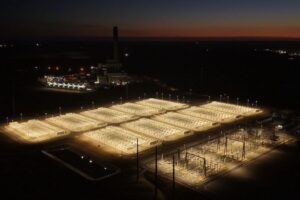The New South Wales electricity networks have backed away from a controversial proposal to impose special network charges – effectively a “solar tax” – on households exporting their solar output back into the grid.
The proposal – made last month in a document “Electricity Tariff Reform in NSW” – outraged the solar industry, which pointed out that most solar households in the state are paid nothing, or very little (just 4.8c/kWh), for the excess output sent back into the grid.

The networks said the charge could be extended to households with battery storage and electric vehicles. But it seems that the NSW networks – in the process of being partially privatised by the state government – have backed off from the proposal, saying it was only “one option” being considered.
“The three NSW networks have no plans to introduce such a tariff,” a spokesman said in a statement.
The decision by the NSW networks contrasts to that by South Australian Power Networks, which has launched court action against a decision by the Australian Energy Regulator to reject a $100 network surcharge on solar households.
It is one of a number of court actions being fought by networks over pricing to consumers. The NSW networks have also taken the AER to court over the amount of money they are allowed to spend on networks, the cost of which they want to pass on to consumers.
And there may yet be a sting in the tail for NSW consumers. The networks have indicated they are still considering a tariff model known as “declining block tariffs” where the cost of electricity actually falls the more the consumer uses.
The networks say this is good, because the more the consumer consumes, the easier it is for the networks to meet their revenue caps.

SAPN, for instance, is proposing demand tariffs that it says will likely cut the uptake of rooftop solar by around half in the next few years, although it argues that it could increase the uptake of battery storage.
The Victorian networks have made similar proposals to the AER, suggesting that any household that looks to install rooftop solar should be put on a demand tariffs. They argue that this will protect their revenue streams.
Consumers, however, say that the low “usage rates” of less than 10c/kWh means that the payback time for rooftop solar will be considerably longer. It may mean that installing solar might have little or even no financial benefit.
Demand tariffs are considered a good idea, as long as they correspond to network peaks and are truly “cost reflective”. But the demand tariffs being proposed by networks across Australia are being portrayed as a “revenue grab” because they only focus on the peak demand of individual households, which may bear no relation to the network peak at all.
In a new report, the Grattan Institute also recommends a demand tariff for Western Australia’s grids, which as RenewEconomy has reported previously, is something of a basket case because its electricity system carries crippling costs yet is heavily subsidised by the government, to the tune of more than $500 million a year.
Grattan notes that the WA grid is laden with cross-subsidies, particularly to those with air conditioning. It concedes demand tariffs will impact solar households – noting that only 40 per cent would be better off under such a tariff, suggesting that the overwhelming majority would not be.
And it doesn’t even think the tariffs would address the main problem: “(Demand tariffs) do not provide a strong price signal for households to reduce consumption during the few hours a year when the network is most under strain.”
But Grattan says efforts to match network peaks are “too complex,” and so demand charges are an acceptable second-best solution.
What demand tariffs do provide is more guaranteed revenue for networks, and more incentive for households to combine solar and storage. It seems that some renewable energy advocates accept this, although others say it puts such technology further out of reach of many households.







